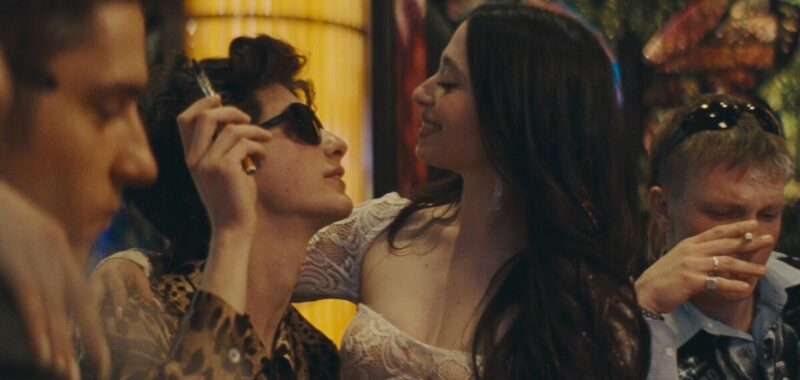“Anora” begins much the same way that so many fairy tales have over the years: A downtrodden young woman, disregarded in her daily life but worthy of so much more, meets a handsome benefactor and is swept off her feet into the realm of Happily Ever After.
“You’re like Cinderella!” a friend gushes early in the movie. “Yes, Cinderella,” our heroine affirms.
In the case of the freewheeling “Anora,” written and directed by Sean Baker, who with movies like “The Florida Project” and “Tangerine” has shown an acute understanding of what it means to be down and out, our Cinderella happens to be a stripper living in Brooklyn and her Prince Charming is the privileged son of a Russian oligarch, a young man possessing wealth and expert knowledge as to where to score the best ketamine in Las Vegas.
With this telling, it’s out with the glass slipper, in with the glass bong.
And, as you might infer, ending this story with a promise of perpetual happiness may be a bit complicated, and it’s in those entanglements where the delights of this lively, generous screwball adventure can be found. If you belong to a certain generation, you might even call the movie “madcap.” But its strength lies in the thorough control Baker retains over the story. “Anora,” which won the Palme d’Or at Cannes earlier this year, stands as the best movie of his career.
Ani (Mikey Madison), as she prefers to be called, shunning the more formal name of the movie’s title, meets Ivan (Mark Eydelshteyn) at her strip club, her boss introducing them because he has asked for a private dancer who speaks Russian. Ani is Uzbek American and knows the language from her grandmother, but she’s barely proficient. Friendly and flirty, her talents lie in other areas, and Ivan soon is eager to know if she “works outside the club.” She does and, not long after they meet, she’s paying a visit to his Brighton Beach mansion.
“You paid for an hour, and there’s still 45 minutes left,” Ani tells him after their first brief encounter.
I did say Ivan was eager. Reckless too, but also, in a certain (neon) light, boyishly charming. He says he’s 21 but, given his impulsive energy and short attention span, that might be dog years. After taking Ani to Vegas on his private jet, Ivan pops the question (maybe J. Lo’s documentary inspired him), prompting Ani to hold up her ring finger and ask, “Three carats?” “What about four?” Ivan replies.
Who says romance is dead?
“Anora” gets off on the hormonal rush of their fling, and for a good part of the movie’s 139-minute running time, Baker delights in the exhilaration of their unhinged melody. But there’s got to be a morning after, and reality comes knocking on the door one day at the behest of Ivan’s parents. An annulment is ordered, the details to be sorted out by Toros (Karren Karagulian), an Armenian priest who doubles as Ivan’s weary fixer, the burly sidekick Garnick (Vache Tovmasyan) and a brooding Russian, Igor (Yura Borisov), brought in for muscle in case things get out of hand — which, of course, they quickly do.
“He shamed his family by marrying someone like you,” Toros tells Ani, a judgment she does not take well. Baker showcases her reaction in a lengthy action set piece that becomes funnier with each flying fist. It’s the first of many times the movie shifts its tone over its second half, becoming grittier and more ambitious as it hurtles toward a final scene that will wreck your heart as the reality of everything Ani has experienced comes crashing down on her.
That final gut punch is a tribute to Madison, who played a member of the Manson Family in Quentin Tarantino’s “Once Upon a Time … in Hollywood,” a movie that continues to cement a place in the casting hall of fame. Baker wrote the part for her, and Madison returned the favor with a star-making performance, leaning into Ani’s audacity while revealing the fragile façade, the vulnerabilities and self-deception lurking underneath.
Baker’s movies are attuned to class and privilege, existing on the edges of an America rarely captured on film. In “Anora,” he wraps his protagonist in a Russian sable and glories in her upward mobility to the tune of Take That’s “Greatest Day” (“The future is ours to find”) only to send her into the wintry streets of Brighton Beach and the cold Coney Island boardwalk, jockeying with a bunch of thugs for power and status. Baker pushes the comedy, but, just as with Ani, the injustice of it all is plain as day. You won’t root harder for another character this year.

